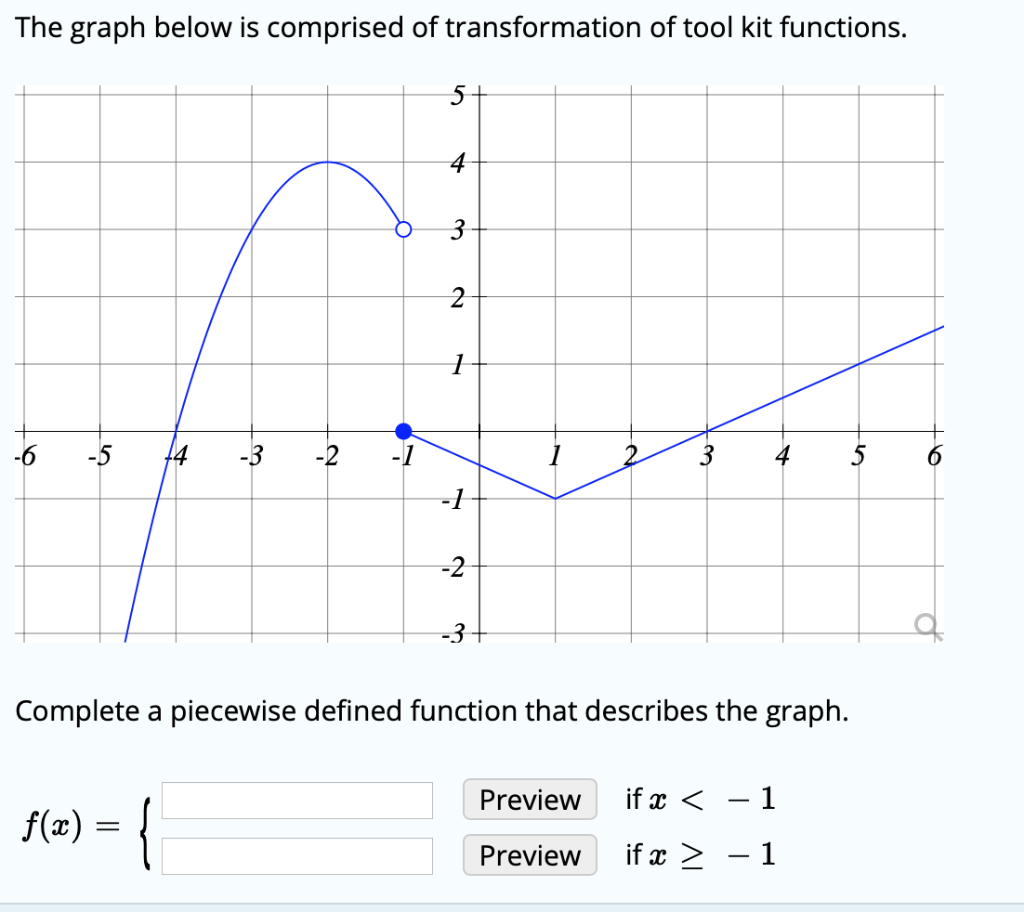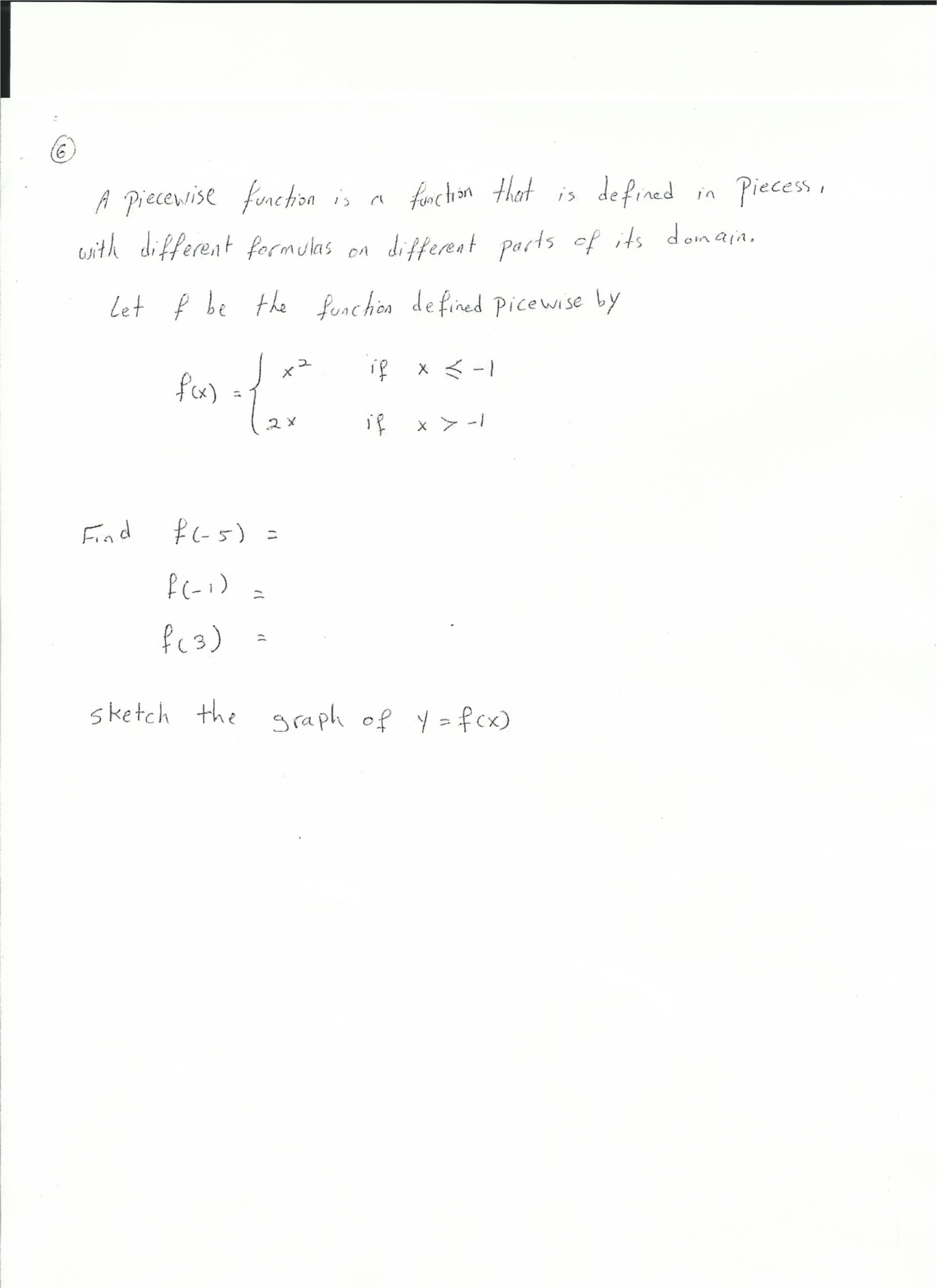

#Definition piecewise function code#
The syntax is as follows:ĭef function_name(parameters separated by commas):Įxample code for defining a function that adds two numbers and returns the result:Īs you can see from the example above functions can return a value by using the keyword return. The standard way to define a function in python is by using the def keyword. Functions Sage Defining Functions using def So if x has never been assigned a value you can enter the expression Solve and x will be treated as a symbolic variable. Symbolic Variables As was stated above all variables are symbolic until they are assigned a value. For example if you enter the expression x = 5 then x is now an integer variable. Standard Variables Standard variables are declared the same way that they are in Sage by assigning them a value. Any variable name that is used without having been assigned a value is automatically assumed to be a symbolic variable. The main difference is that Mathematica doesn't require you to explicitly specify a variable as symbolic, this is determined automatically by Mathematica. Mathematica has both standard variables and symbolic variables as well, but the use of them differs from Sage. Note: the same variable name restriction for standard variables apply to symbolic variables as well. The var function takes one string parameter s where s is the list of variable names to be created separated by either spaces or commas.

Syntax for creating symbolic variables x and y.These variables are used all over Sage for solving equations, plotting, creating symbolic arithmetic, to name a few instances. Since support for symbolic variables is not builtin to python symbolic variables must be created using special syntax. Symbolic variables are created without assigning them a value. The second type of variable Sage supports are called symbolic variables. c will then hold the value 'hello' until you change the value by assigning a new value to c. For example we can create a variable c and assign it to the string 'hello' by using the command c = 'hello'. Standard python variables are created when they are assigned a value. The first type are standard python variables which may be integers, floats, string, objects, etc. Sage has support for two types of variables. Variable names cannot be the name of a protected symbol.Variable names cannot begin with a number.Mathematica places the following restrictions on variable names: Mathematica is more flexible with variable names than Sage is and allows the use of subscripts and other math symbols to be used in variable names. Variable names cannot contain any spaces.Variable names must begin with a letter or underscore.Variable names can contain only letters, numbers, and underscores.Sage places the following restrictions on variable names: 2.2.4 Functions with Multiple Definitions.2.1.4.2 Functions with Multiple Definitions.2.1.2 Defining Functions with Mathematical Syntax.


 0 kommentar(er)
0 kommentar(er)
